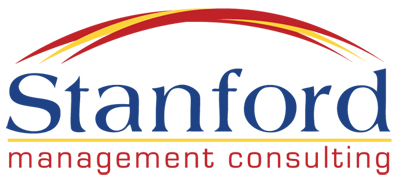 “Julia, I am working as hard as I can to make changes in my business. Why do I feel like I take two steps forward only to take one step back?”
“Julia, I am working as hard as I can to make changes in my business. Why do I feel like I take two steps forward only to take one step back?”
You can read part 1 here.
Resistance to Change & Why Change Doesn’t Work
There are several reasons why implementing a change doesn’t work.
- It’s the wrong idea.
- It’s the right idea but the wrong time
- The reasons for the change are wrong
- There is a lack of authenticity
- It’s unrealistic
- Bad luck!
- Poor leadership
- Personal ambition gets in the way
- People are not ready for the change
- People get carried away
- Conflict resolution takes too much energy.
There are multiple reasons why a making a change may not work. The reasons may appear in isolation but usually they are acting in combinations! Having information on the reasons for change is not sufficient, there is a need to understand why they occur. Get to the why!
Reasons for Resistance
People resist change because it is usually seen as
- Disruptive
- Unwelcome
- Intrusive
- Increasing workload
Other reasons why resistance can arise include:
- Lack of trust
- Misunderstanding of the purpose
- Peer pressure
- Differing assessments of the situation
- Previous bad experiences
- Disinterest
- Change weariness
- Fear
- Ego
Why Do Change Programs Fail?
Not all changes are successful – this is true both in life and in business. In several cases it may be due to a lack of skills:
- Analytical Skills
- People Skills
- System Skills
- Business Skills
Let’s take a closer look at these:
Lack of Analytical Skills
In change or change management – guessing won’t do. The ability to analyze operations and finance is important.
Analysis can lead to solution engineering, which is vital in a change process.
Lack of People Skills
In today’s high paced business environment it is essential that you possess clear and precise people skills. These include:
- Communication skills
- Empathy
- Emotional intelligence
- Facilitation
- Appreciation
Lack of Systems Skills
This will damage the change process because lack of system skills prevent:
- Understanding how the systems involved in or impacted by the change actually operate.
- Ability to design new and improved systems and to critically evaluate them.
- Linking the systems skills with analytical skills to develop reasoned opportunities.
Lack of Business Skills
This will damage the change process because of a lack of:
- Basic understanding of how the business actually works.
- Knowledge of the various interdependencies among the business functions.
- Ability to communicate effectively in the main business functions
Change Failure
Here are some fundamental mistakes to avoid when leading and implementing a change process.
- No powerful guiding group
- No vision
- No communication of the vision
- No short term wins
- Victory declared too soon
- No deep rooted change in the culture
- Complacency
Most of these can be avoided or have their influence reduced if care is taken to acknowledge them and deal with them at the start of the change process and if vigilance is maintained for them throughout the change process.
Are You Ready for Change?
From what we have discussed, is your company ready for change? It had better be since:
- Change is a fact of life
- Change is required for long-term success.
- Change is not optional
Change is the only constant in business, and the following factors must be recognized:
- Change may be caused by internal or external factors
- Resistance to change is a normal reaction
- Change cannot always be planned
- When change can be planned, use all available information when planning.
- Communication and involvement are key elements.
- Change requires a strong change leader
- Recognize and overcome the known obstacles to change
- Use change as a positive driver for the business.
Without taking heed of the negatives and planning for the positives to be implemented, change will be seen as a resource draining activity that is unwelcome in the organization. The ability to plan, implement and manage change successfully provides a business with a significant competitive advantage in today’s business environment.
